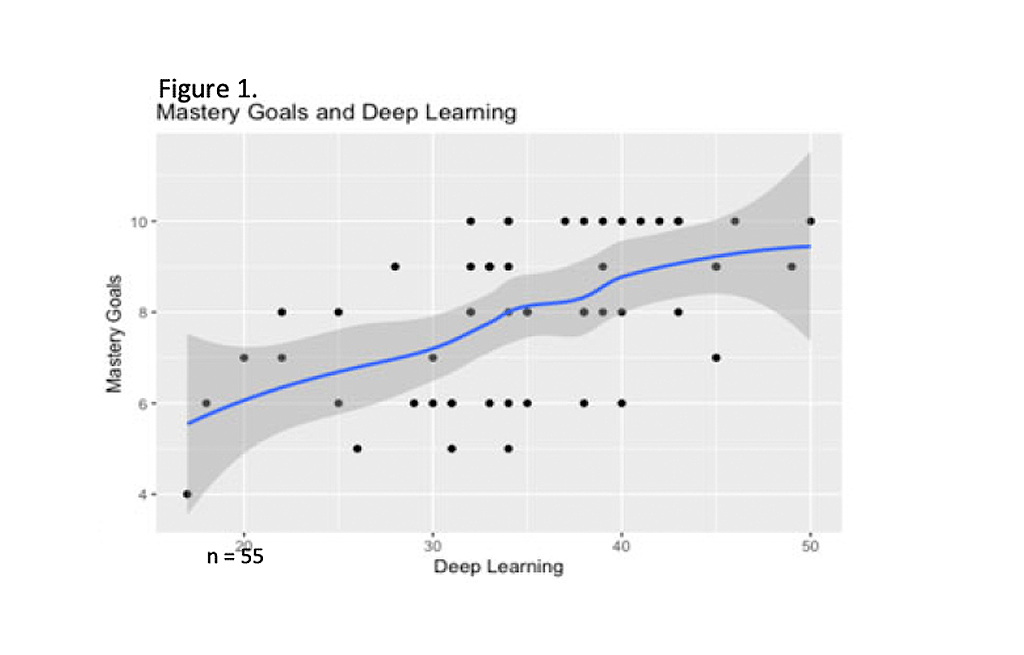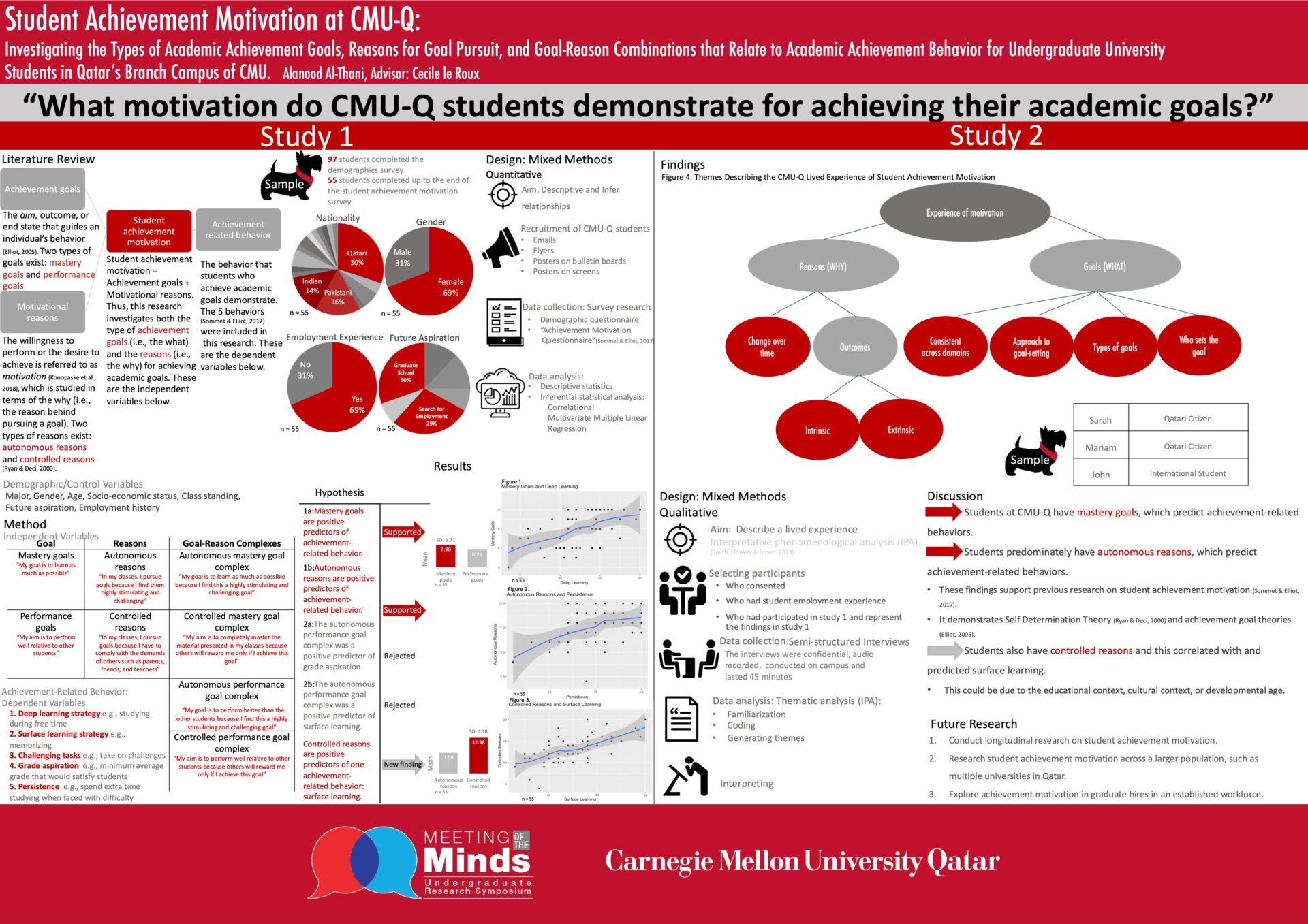Student achievement motivation is the motivation that students demonstrate to achieve their academic goals. Student achievement motivation has been researched in Western counties, but limited research exists in Qatar. Thus, the current research investigates “What is the motivational profile of undergraduate students at CMU-Q to achieve their academic goals?” In order to answer this question, two studies were conducted. Study 1 used quantitative methods to describe the motivational profile of CMU-Q students in terms of the type of goals, the reasons for their goal pursuit, as well as goal-reason combinations. Study 2 used a qualitative methodology to describe the lived experience of student achievement motivation for a sub-sample of the Study 1 participants. The Study 1 results showed that the majority of participants have mastery goals (e.g., “My goal is to learn as much as possible”) and autonomous reasons (e.g., “In my classes, I pursue goals because I find them highly stimulating and challenging”) for pursuing their academic goals. In addition, some participants have controlled reasons (e.g., “In my classes, I pursue goals because I have to comply with the demands of others such as parents, friends, and teachers”) for achieving their goals. Study 1 also found that mastery goals and autonomous reasons were positive predictors of achievement related behavior (e.g., study persistence) and controlled reasons were positive predictors of one achievement related behavior: surface learning. The Study 2 participants described a lived experience of student achievement motivation at CMU-Q, including examples of the Study 1 goal types and reasons. Overall, it was found that student achievement motivation for CMU-Q students consists of mastery goals and autonomous and controlled reasons. Moreover, the outcomes highlight that goals and reasons are experienced differently at different times across the undergraduate years, suggesting that it changes over time, whereas goals and reasons are experienced the same across domains (e.g., student employment and academic context). Implications are discussed in terms of supporting student achievement motivation at CMU-Q and for graduates entering the workforce. Future research needs to further explore motivational changes over time and motivation in different domains, as well as describe a motivational profile for undergraduate students across Qatar.
Watch video | Printable poster [.pdf]




Informatika
What is the motivational profile of undergraduate students at CMU-Q in terms of academic goals, pursuit reasons, and their combinations? Greeting : Telkom University